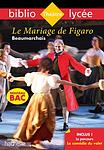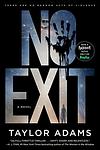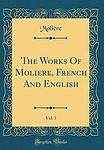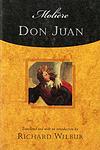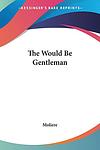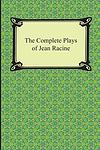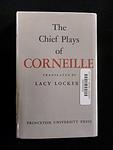The Greatest Italian, French, German "Plays" Books of All Time
Click to learn how this list is calculated.
This list represents a comprehensive and trusted collection of the greatest books. Developed through a specialized algorithm, it brings together 305 'best of' book lists to form a definitive guide to the world's most acclaimed books. For those interested in how these books are chosen, additional details can be found on the rankings page.
Genres
Plays are a category of literature that consists of written works intended for performance on stage. They typically feature dialogue between characters and are structured into acts and scenes. Plays can be comedic, tragic, or a combination of both, and often explore themes such as love, power, and morality. They are meant to be performed by actors in front of an audience, and can be enjoyed both as written works and as live performances.
Countries
Date Range
Reading Statistics
Click the button below to see how many of these books you've read!
Download
If you're interested in downloading this list as a CSV file for use in a spreadsheet application, you can easily do so by clicking the button below. Please note that to ensure a manageable file size and faster download, the CSV will include details for only the first 500 books.
Download-
1. Faust by Johann Wolfgang von Goethe
The book is a tragic play in two parts that tells the story of a scholarly man named Faust, who becomes dissatisfied with his life and makes a pact with the devil, Mephistopheles. In exchange for unlimited knowledge and worldly pleasures, Faust agrees to give his soul to Mephistopheles after death. The narrative explores themes of ambition, despair, love, and redemption, ultimately leading to Faust's salvation.
The 84th Greatest Book of All Time -
2. Tartuffe by Molière
This classic French play revolves around the character Tartuffe, a hypocritical and cunning man who pretends to be deeply pious and religious. He manages to deceive Orgon, a wealthy family patriarch, into believing in his piety. Orgon is so taken in by Tartuffe that he decides to marry him off to his daughter, despite her love for another man. The family works together to expose Tartuffe's true nature, leading to a series of comic and dramatic events. The play is a satirical critique of religious hypocrisy and gullibility.
The 531st Greatest Book of All Time -
3. Cyrano de Bergerac by Edmond Rostand
"Cyrano de Bergerac" is a classic French play that tells the story of a nobleman named Cyrano, who is a talented poet and swordsman but has a very large nose. Despite being deeply in love with his cousin Roxane, Cyrano doesn't believe she could ever love him because of his appearance, so he helps his friend Christian woo her instead. Cyrano writes love letters to Roxane on behalf of Christian, and Roxane falls in love with the man she believes Christian to be. The story is a tragic tale of unrequited love, selflessness, and the power of inner beauty.
The 590th Greatest Book of All Time -
4. Six Characters in Search of an Author by Luigi Pirandello
In this metatheatrical play, six characters come to life and demand that a theater director tell their tragic story, which was left incomplete by their author. As the director and his actors interact with these characters, the boundaries between fiction and reality blur, leading to a philosophical exploration of the nature of human identity, the reliability of art, and the unreliability of perception. The characters' story, involving a complex web of familial relationships, adultery, and suicide, further complicates the narrative, challenging the audience's understanding of truth and illusion.
The 608th Greatest Book of All Time -
5. Phèdre by Jean Racine
"Phèdre" is a classic French play that explores themes of love, guilt, and retribution. The story revolves around the tragic heroine, Phèdre, who falls passionately in love with her stepson, Hippolytus. Battling with her forbidden desires, she eventually confesses her feelings to Hippolytus, leading to a series of devastating events. The play is renowned for its exploration of human emotions, moral dilemmas, and the destructive power of uncontrolled passion.
The 662nd Greatest Book of All Time -
6. Le Mariage De Figaro by Pierre-Augustin Caron de Beaumarchais
The play is a comedic yet biting commentary on class and privilege, set against the backdrop of a single day in the life of a clever valet named Figaro, who is about to marry his beloved Suzanne. However, their plans are threatened by the Count, who desires Suzanne for himself and aims to exercise his feudal right to bed a servant girl on her wedding night. Through a series of clever maneuvers, secret plots, and humorous twists, Figaro, Suzanne, and their allies outwit the Count and other members of the aristocracy. The play challenges the social norms of the time, including the abuses of the upper classes and the rights of individuals, culminating in a celebration of love and marriage where wit and resourcefulness triumph over rank and power.
The 1232nd Greatest Book of All Time -
7. The Imaginary Invalid by Molière
The play is a satirical comedy that centers around Argan, a hypochondriac who obsesses over his health and squanders his fortune on unnecessary medical treatments. His ailment is exploited by charlatan doctors and a greedy wife, while his daughter's marital future hangs in the balance due to his misguided intentions. The story unfolds with a clever servant, Toinette, and Argan's brother, Béralde, attempting to open his eyes to the truth of his condition and the deceit around him. Through a series of humorous events, including a mock ceremony, the play critiques the medical profession and the foolishness of those who blindly follow it, ultimately advocating for common sense and true familial love.
The 1463rd Greatest Book of All Time -
8. The Bald Soprano by Eugène Ionesco
"The Bald Soprano" is a play that explores the absurdity of everyday life through a nonsensical narrative. It revolves around two middle-class English couples, the Smiths and the Martins, who engage in meaningless and repetitive conversations. The play is known for its unconventional structure, lack of plot, and the characters' surreal behavior, which are all used to satirize the banality and futility of routine and social norms. The title refers to a character who is never seen or mentioned again after the opening scene.
The 1558th Greatest Book of All Time -
9. The Misanthrope by Molière
"The Misanthrope" is a satirical play that explores the hypocrisy and corruption of French aristocratic society through the eyes of the protagonist, a man who insists on absolute honesty and despises flattery, insincerity, and social conventions. Despite his disdain for society, he falls in love with a coquette who embodies everything he detests, leading to a series of comedic and dramatic situations. The narrative ultimately emphasizes the importance of balance between truth and courtesy in social interactions.
The 1609th Greatest Book of All Time -
10. No Exit by Jean Paul Sartre
The book is a profound existentialist play that delves into the human psyche and the concept of hell through the experiences of three deceased characters who find themselves trapped together in a mysterious, windowless room. As they engage in intense psychological games and confront the worst aspects of their earthly behaviors, they come to the harrowing realization that their torment comes not from any external punishment, but from each other and the eternal company they are forced to keep. The narrative explores themes of freedom, responsibility, and the often unbearable nature of human existence, encapsulated in the famous line, "Hell is other people."
The 1640th Greatest Book of All Time -
11. Rameau's Nephew by Denis Diderot
"Rameau's Nephew" is a philosophical dialogue that explores themes of morality, societal norms, and the nature of genius. The story revolves around a conversation between a philosopher and a character who is the nephew of a famous musician. The nephew, a freeloader and a parasite, defends his lifestyle by arguing that it is not only acceptable but also necessary in a society where wealth and power determine value. The dialogue delves into the contradictions and ironies of social conventions, challenging traditional notions of virtue, vice, and human nature.
The 1643rd Greatest Book of All Time -
12. The Works of Moliere by Molière
This book is a compilation of the works of a renowned 17th-century French playwright, who is often considered one of the greatest masters of comedy in Western literature. His plays are known for their satirical examination of social norms and human folly, featuring a range of characters from the foolish and the pedantic to the hypocritical and the corrupt. Some of his most famous works included in this collection are "Tartuffe," "The Misanthrope," and "The Imaginary Invalid."
The 1673rd Greatest Book of All Time -
13. Mother Courage and Her Children by Bertolt Brecht
Set against the backdrop of the Thirty Years' War, the book tells the story of a canteen woman, Mother Courage, who pulls her cart with her three children across war-torn Europe. It explores her struggles and survival tactics as she tries to profit from the war while keeping her children safe. The narrative is a profound critique of war and its consequences, highlighting the human cost of conflict and the often futile search for prosperity and security in a chaotic world.
The 1721st Greatest Book of All Time -
14. The Resistible Rise of Arturo Ui by Bertolt Brecht
"The Resistible Rise of Arturo Ui" is a satirical play that uses the rise of a fictional 1930s Chicago mobster, Arturo Ui, to parallel the rise of Adolf Hitler in Nazi Germany. The narrative is a critique of those who allowed Hitler to come to power, emphasizing that his rise was indeed resistible. The play explores themes of power, corruption, manipulation, and the dangers of complacency, showcasing the destructive potential of unchecked ambition and the failure of society to prevent the ascent of dangerous individuals.
The 1725th Greatest Book of All Time -
15. Le Cid by Pierre Corneille
"Le Cid" is a dramatic play that follows the story of a young nobleman who is torn between love and honor. The protagonist is faced with a dilemma when he is ordered to kill his beloved's father in a duel to defend his own father's honor. Despite his love for his girlfriend, he chooses honor over love and kills her father, leading to a series of tragic events. The play explores themes of duty, honor, and the moral complexities of revenge.
The 1794th Greatest Book of All Time -
16. Galileo by Bertolt Brecht
This play delves into the life of the renowned Italian scientist, Galileo Galilei, who challenged the church's belief in a geocentric universe. It explores his struggles against the Catholic Church, his recantation, and the consequences of his actions on his life and those around him. The narrative also examines the conflict between science and religion, the ethics of scientific discovery, and the price of truth.
The 1877th Greatest Book of All Time -
17. The Satin Slipper by Paul Claudel
"The Satin Slipper" is a complex and symbolic narrative that explores the themes of love, faith, and destiny. Set in the 16th century, the story revolves around two characters, a Spanish conquistador and a married lady of the Spanish court, who are deeply in love but are kept apart by their respective duties and responsibilities. Their love story is intertwined with historical events and mythical elements, creating a rich tapestry of human emotions and spiritual contemplations.
The 2033rd Greatest Book of All Time -
18. Marivaux: Three Plays by Pierre Carlet de Chamblain de Marivaux
"Marivaux: Three Plays" is a collection of three significant works by a renowned 18th-century French playwright. The plays explore themes of love, deception, and class in the context of French society of the time. The characters are often caught in complex situations that test their moral values and emotional resilience, providing readers with a profound understanding of human nature and societal norms. The plays are known for their sophisticated language, psychological depth, and intricate plot twists, making them a classic in French literature.
The 2206th Greatest Book of All Time -
19. Don Juan by Molière
This comedic play explores the life of a libertine nobleman who is infamous for his seduction of women. The protagonist is a man who lives by his own rules, unburdened by morality or religion, and who takes pleasure in manipulating others for his own gain. His actions eventually lead to his downfall when he refuses to repent for his sins, resulting in a dramatic, supernatural punishment.
The 2207th Greatest Book of All Time -
20. The Would-Be Gentleman by Molière
This comedic play revolves around a middle-class man who aspires to elevate his social status and become a gentleman. He hires teachers to educate him in the arts, language, and manners of the upper class, but his lack of understanding and pretentious behavior only makes him look foolish. His obsession with his newly acquired 'gentleman' status strains his relationship with his sensible wife and daughter, and leads to a series of humorous and satirical incidents that mock the pretensions and hypocrisy of the society.
The 2211th Greatest Book of All Time -
21. The Miser by Molière
"The Miser" is a comedic play that revolves around a wealthy man who is so obsessed with his money that he neglects his own children. His son and daughter, both in love with people they cannot afford to marry due to their father's stinginess, scheme to trick him out of his wealth. The play satirizes the greed and hypocrisy of the upper class, while exploring themes of love, deception, and the value of money.
The 2214th Greatest Book of All Time -
22. Spring Awakening by Frank Wedekind
The book is a provocative and controversial play that delves into the tumultuous emotional landscape of adolescence. Set in late 19th-century Germany, it follows a group of teenagers as they navigate the complexities of sexuality, authority, and rebellion. The narrative exposes the repressive and hypocritical nature of the society that stifles the natural desires and questions of the young characters, leading to tragic consequences. Through its candid exploration of themes such as sexual awakening, suicide, abortion, and the critique of the educational system, the play challenges the audience to confront the damaging effects of ignorance and the urgent need for open communication and understanding between generations.
The 2707th Greatest Book of All Time -
23. The Caucasian Chalk Circle by Bertolt Brecht
The play is a parable set in the Soviet Union that explores themes of justice, class struggle, and morality through the story of Grusha, a servant girl who risks her life to protect an abandoned child of noble birth during a time of revolution. As the child grows, a dispute over his custody arises, leading to a trial presided over by a wily, unconventional judge named Azdak. The trial's resolution hinges on the titular chalk circle test, which ultimately reveals the true nature of parental love and the importance of putting the needs of the child first. The narrative is a commentary on the social and political issues of the time, advocating for a society that prioritizes the welfare of its most vulnerable members.
The 2778th Greatest Book of All Time -
24. The Complete Plays of Jean Racine by Jean Racine
This collection presents all the dramatic works of a renowned 17th-century French playwright, known for his mastery of French classical tragedy. The plays explore themes of love, power, tragedy, and the complex dynamics of political and personal life. The author's poetic style, psychological depth, and exploration of classical themes have made him one of the most influential figures in French drama. The collection includes both his well-known and lesser-known works, providing a comprehensive look at his contribution to theatre.
The 3017th Greatest Book of All Time -
25. Plays by Pierre Corneille
This collection of plays by a renowned 17th-century French dramatist features a variety of works that have significantly influenced the development of classical French tragedy. The plays often explore themes of honor, fate, and moral integrity, with complex characters who grapple with high-stakes moral and ethical dilemmas. The author's skillful use of language and his innovative approach to dramatic structure and characterization have made these plays enduring classics of French literature.
The 3024th Greatest Book of All Time
Reading Statistics
Click the button below to see how many of these books you've read!
Download
If you're interested in downloading this list as a CSV file for use in a spreadsheet application, you can easily do so by clicking the button below. Please note that to ensure a manageable file size and faster download, the CSV will include details for only the first 500 books.
Download




